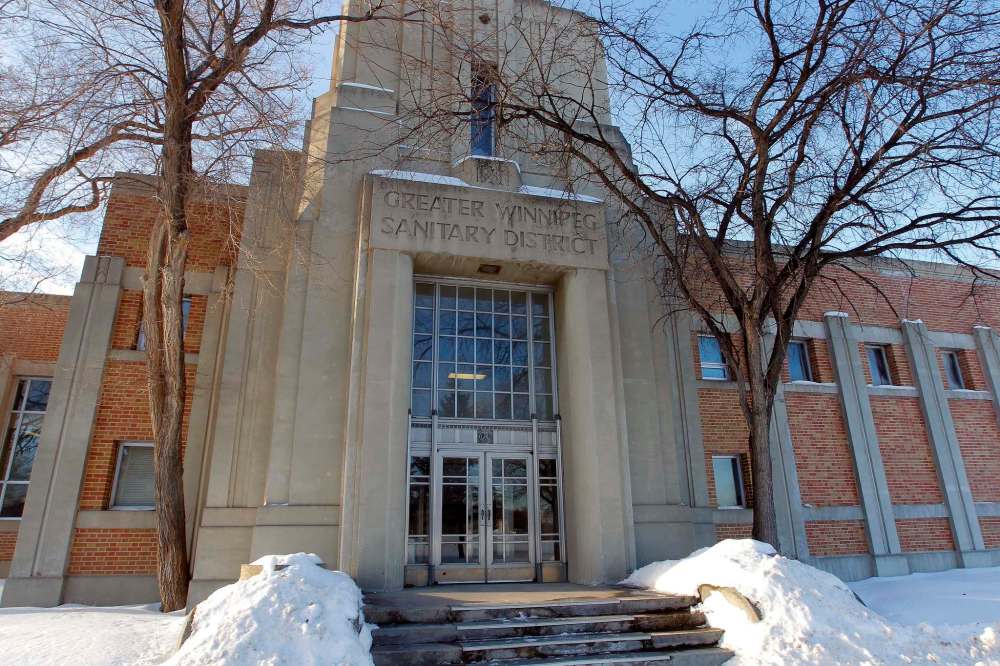City to mull proposed water, sewage rate increases
Advertisement
Read this article for free:
or
Already have an account? Log in here »
To continue reading, please subscribe:
Monthly Digital Subscription
$0 for the first 4 weeks*
- Enjoy unlimited reading on winnipegfreepress.com
- Read the E-Edition, our digital replica newspaper
- Access News Break, our award-winning app
- Play interactive puzzles
*No charge for 4 weeks then price increases to the regular rate of $19.00 plus GST every four weeks. Offer available to new and qualified returning subscribers only. Cancel any time.
Monthly Digital Subscription
$4.75/week*
- Enjoy unlimited reading on winnipegfreepress.com
- Read the E-Edition, our digital replica newspaper
- Access News Break, our award-winning app
- Play interactive puzzles
*Billed as $19 plus GST every four weeks. Cancel any time.
To continue reading, please subscribe:
Add Free Press access to your Brandon Sun subscription for only an additional
$1 for the first 4 weeks*
*Your next subscription payment will increase by $1.00 and you will be charged $16.99 plus GST for four weeks. After four weeks, your payment will increase to $23.99 plus GST every four weeks.
Read unlimited articles for free today:
or
Already have an account? Log in here »
Hey there, time traveller!
This article was published 03/01/2020 (2166 days ago), so information in it may no longer be current.
Water and sewage could soon become more expensive for Winnipeg homeowners.
When the city’s water and waste committee convenes Jan. 9, several recommendations from the public service will be on the table, including a gradual increase in both water and sewage rates between 2020 and 2023 that would result in the typical residential bill rising by $34 a quarter over that span.
Winnipeg’s current water rate ($1.82 per cubic metre) and sewage rate ($2.81 per cubic metre) are proposed to start increasing as early as March, and grow by 18 and 16 cents, respectively. Overall, the typical rate would increase by a little under three per cent, on average, each year.

In the City of Winnipeg’s administrative report on water and sewer rates, the author states the main reason for increases is to raise capital to cover the bill for upgrades to the north end water pollution control centre, estimated to be roughly $961 million.
One project, a $553-million biosolids facility upgrade, was singled out in the report as imperative to begin as soon as possible to address usage capacity in the face of "recent, unprecedented growth."

!function(e,i,n,s){var t=”InfogramEmbeds”,d=e.getElementsByTagName(“script”)[0];if(window[t]&&window[t].initialized)window[t].process&&window[t].process();else if(!e.getElementById(n)){var o=e.createElement(“script”);o.async=1,o.id=n,o.src=”https://e.infogram.com/js/dist/embed-loader-min.js”,d.parentNode.insertBefore(o,d)}}(document,0,”infogram-async”);
While the number of city residents has grown, they have been consuming significantly less water per capita each day over the last decade, the report says. The typical family of four used nearly 270 litres in 2012, versus less than 190 L in 2019. The drop in consumption, combined with the anticipated water and sewer revenue of $349 million in 2020, helped pave the way for the recommended rate increases, the report states.
The committee’s agenda also lists several other public service recommendations to be implemented over the next four years, including an increase to the daily basic charge rate for all meter sizes; a 45.5 per cent increase in hauled wastewater disposal rates; and an increase to sewer service buy-in charges.
Those changes will all contribute to what the city is projecting to be a sharp uptick in water and sewage revenue over the next decade. Between 2020 and 2029, waterworks revenues are expected to climb more than 26 per cent, while sewage revenues will rise nearly 30 per cent.
As well, the public service is recommending the creation of a reserve to fund a program to replace and renew existing meters with advanced ones. The report notes of the 211,000 city-owned water meters, nearly two-thirds are due for replacement.
Also on the Jan. 9 agenda:
— A $2.86-million, multi-family garbage collection pilot project might be on the chopping block.
The public service is recommending to not proceed with insourcing a contract for the two-year project. The pilot was originally slated to cost about $2.2 million over its term, but the public service estimates the bill to be $656,000 more, which it said cannot be done under the current budget.
— A report is due on a Riel community committee recommendation the city look into a ban on the use and sale of single-use plastic bottles, straws, and stir sticks at its facilities and parks, as well as at city-sponsored events.
— The committee will also discuss the city’s annual report on its climate action plan, which includes greenhouse gas emission data.
ben.waldman@freepress.mb.ca

Ben Waldman covers a little bit of everything for the Free Press.
Our newsroom depends on a growing audience of readers to power our journalism. If you are not a paid reader, please consider becoming a subscriber.
Our newsroom depends on its audience of readers to power our journalism. Thank you for your support.
History
Updated on Friday, January 3, 2020 5:28 PM CST: Adds graphic


